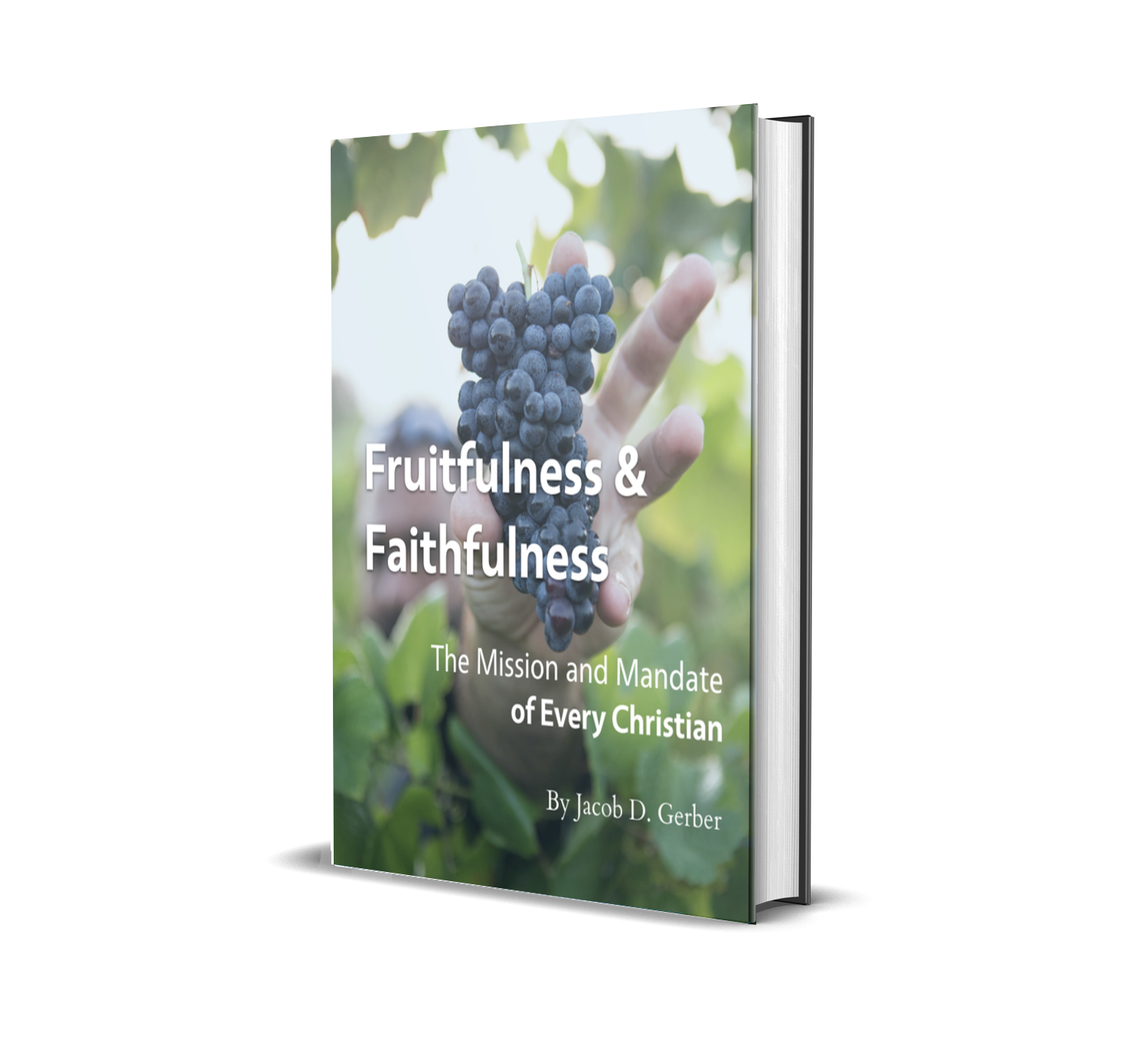Love: The Fruit that Jesus Demands
In the allegory of the vine in John 15:1–17, Jesus defines three out of the four key images of his allegory in the first five verses. So, from the outset, Jesus tells us the identity of the vine, the vinedresser, and the branches:
[1] “I am the true vine, and my Father is the vinedresser. [2] Every branch in me that does not bear fruit he takes away, and every branch that does bear fruit he prunes, that it may bear more fruit. [3] Already you are clean because of the word that I have spoken to you. [4] Abide in me, and I in you. As the branch cannot bear fruit by itself, unless it abides in the vine, neither can you, unless you abide in me. [5] I am the vine; you are the branches. Whoever abides in me and I in him, he it is that bears much fruit, for apart from me you can do nothing.” (John 15:1–5)
Jesus is the vine. His Father is the vinedresser. We are the branches.
The Fruit Jesus Demands: Love
But what exactly is the fruit that Jesus says we must bear? Fruitfulness and fruit-bearing are at the heart of this passage, for Jesus calls us not only to bear fruit, but to bear “more fruit” (John 15:2) and ultimately to bear “much fruit” (John 15:5).
Jesus keeps us in suspense about the identity of the fruit in the allegory until the very end of this passage:
[12] “This is my commandment, that you love one another as I have loved you. [13] Greater love has no one than this, that someone lay down his life for his friends. [14] You are my friends if you do what I command you. [15] No longer do I call you servants, for the servant does not know what his master is doing; but I have called you friends, for all that I have heard from my Father I have made known to you. [16] You did not choose me, but I chose you and appointed you that you should go and bear fruit and that your fruit should abide, so that whatever you ask the Father in my name, he may give it to you. [17] These things I command you, so that you will love one another.” (John 15:12–17)
The fruit Jesus commands us to bear—the fruit that will abide for all of eternity (John 15:16)—is love. Not just warm, fuzzy, puppy-dog love, but love that Jesus will define by his sacrifice at the cross (John 15:13).
The Fruitful Love that Jesus Demands
Not many of us will be called to die physically for our friends. If we do face that choice, then Jesus defines our responsibility to lay down our life for our friends clearly.
For the rest of us, the call to lay down our lives is no less serious. Jesus calls us to reorient our minds and hearts away from pursuing our own interests, but the interests of others.
Paul tells us that this kind of other-seeking orientation is the kind of mind that Christ Jesus had when he willingly took upon the form of the servant and humbled himself to death on the cross (Phil. 2:4–5).
Therefore, the love that Jesus demands is willing to sacrifice anything—whether our lives, or our time, talents, and resources—for the good of another.
Love as Fruitful Disciple-Making
This is why I define discipleship as learning to lead. Jesus calls us to learn from him as his disciples so that we can lead others as he led us: “This is my commandment, that you love one another as I have loved you” (John 15:12). Jesus’ leadership was not tyrannical or domineering, but characterized by self-sacrificial love.
When we follow Jesus’ lead by seeking to lead other people to become disciples of Jesus, we must necessarily set aside our interests in order to seek the greatest possible good for the other person.
Elsewhere in the Gospel of John, Jesus describes disciple-making as the work of “gathering fruit for eternal life” (John 4:36). The fruit that Jesus demands is the fruit of love expressed through leading others to become disciples of Jesus.
In the Old Testament, then, fruitfulness was described in terms of biological reproduction, since God was seeking godly offspring (lit., “seed”) from the children of his people (Mal. 2:15). God’s people were to raise their children to know their covenant God (e.g., Gen. 17:1–14; Deut. 6).
In the New Testament, God still insists that his covenant promises are for the children of his people (Acts 2:39). But, God also insists that through Jesus, the fruitful vine, God’s promises will extend even to those who are far off as well (Acts 2:39; Eph. 2:11–22). Therefore, Jesus still calls us to make disciples of our children, but also of all nations (Matt. 28:19).
Remember, then, the words of Jesus: “You did not choose me, but I chose you and appointed you that you should go and bear fruit and that your fruit should abide, so that whatever you ask the Father in my name, he may give it to you. These things I command you, so that you will love one another” (John 15:16–17).
Love one another.
FREE eBook: Fruitfulness and Faithfulness: God’s Mission and Mandate of Every Christian
Grow in God’s Plan for Your Fruitfulness and Faithfulness

Invest Your Life Well
Discover God’s breathtaking vision for the fruitfulness of his people.
Learn how to live fruitfully and faithfully in the kingdom of Jesus.
Download the free eBook now.
Get the eBook
Bonus: You’ll also get a discipleship assessment tool to evaluate areas for you to grow in fruitfulness and faithfulness.




